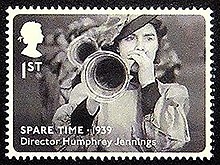
A post office is a public facility and a retailer that provides mail services, such as accepting letters and parcels, providing post office boxes, and selling postage stamps, packaging, and stationery. Post offices may offer additional services, which vary by country. These include providing and accepting government forms, and processing government services and fees. The chief administrator of a post office is called a postmaster.

Postage stamps and postal history of Great Britain surveys postal history from the United Kingdom and the postage stamps issued by that country and its various historical territories until the present day.
Franking comprises all devices, markings, or combinations thereof ("franks") applied to mails of any class which qualifies them to be postally serviced. Types of franks include uncanceled and precanceled postage stamps, impressions applied via postage meter, official use "Penalty" franks, Business Reply Mail (BRM), and other permit Imprints (Indicia), manuscript and facsimile "franking privilege" signatures, "soldier's mail" markings, and any other forms authorized by the 192 postal administrations that are members of the Universal Postal Union.

Frank Humphrey Sinkler Jennings was an English documentary filmmaker and one of the founders of the Mass Observation organisation. Jennings was described by film critic and director Lindsay Anderson in 1954 as "the only real poet that British cinema has yet produced".
The GPO Film Unit was a subdivision of the UK General Post Office. The unit was established in 1933, taking on responsibilities of the Empire Marketing Board Film Unit. Headed by John Grierson, it was set up to produce sponsored documentary films mainly related to the activities of the GPO.
Sir Arthur Hallam Rice Elton, 10th Baronet was a pioneer of the British documentary film industry.

Alberto de Almeida Cavalcanti was a Brazilian-born film director and producer. He was often credited under the single name "Cavalcanti".

Night Mail is a 1936 British documentary film directed and produced by Harry Watt and Basil Wright, and produced by the General Post Office (GPO) Film Unit. The 24-minute film documents the nightly postal train operated by the London, Midland and Scottish Railway (LMS) from London to Scotland and the staff who operate it. Narrated by John Grierson and Stuart Legg, the film ends with a "verse commentary" written by W. H. Auden to a score composed by Benjamin Britten. The locomotive featured in the film is LMS Royal Scot Class 6115 Scots Guardsman.
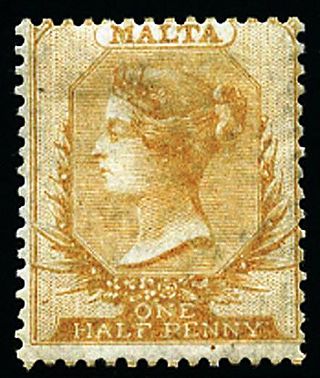
The postal history of Malta began in the early modern period, when pre-adhesive mail was delivered to foreign destinations by privately owned ships for a fee. The earliest known letter from Malta, sent during the rule of the Order of St John, is dated 1532. The first formal postal service on the islands was established by the Order in 1708, with the post office being located at the Casa del Commun Tesoro in Valletta. The first postal markings on mail appeared later on in the 18th century.
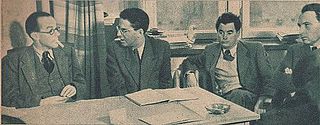
Basil Charles Wright was an English documentary filmmaker, film historian, film critic and teacher.

Listen to Britain is a 1942 British propaganda short film by Humphrey Jennings and Stewart McAllister. The film was produced during World War II by the Crown Film Unit, an organisation within the British Government's Ministry of Information to support the Allied war effort. The film was nominated for the inaugural Academy Award for Best Documentary Feature in 1943, but lost against four other Allied propaganda films. It is noted for its nonlinear structure and its use of sound.
The Documentary Film Movement is the group of British filmmakers, led by John Grierson, who were influential in British film culture in the 1930s and 1940s.

Stuart Legg was a pioneering English documentary filmmaker. At the 14th Academy Awards in 1941, Legg's National Film Board of Canada film Churchill's Island became the first-ever documentary to win an Oscar.

Postage stamps and postal history of Singapore surveys postal history from Singapore and the postage stamps issued by that country and its various historical territories until the present day. Postal service in Singapore began with the delivery of stampless letters whose cost was borne by the receiving person, later encompassed pre-paid letters carried by private mail carriers and provisional post offices, and culminated in a system of universal prepayment that required all letters to bear nationally issued adhesive postage stamps. Singapore is an island country off maritime Southeast Asia, located between the Straits of Malacca and the South China Sea.
Patrick Douglas Selmes Jackson was an English film and television director.
Stewart McAllister was a British documentary film editor who collaborated closely with Humphrey Jennings during the Second World War to produce films for the Crown Film Unit of the Ministry of Information. His contributions towards these films was largely neglected until Dai Vaughan's biography of him, Portrait of an Invisible Man, was published in 1983.
The Barbados Postal Service (B.P.S.) is the national postal operator of Barbados and operates as a department within the Government of Barbados where it reports to the Ministry of Home Affairs. The Barbados Postal Service (B.P.S.) is headed by the acting Postmaster General, Sheila Greaves, who is responsible for maintaining the island’s postal services, subject to the laws of the island. In 1852, the Postal services for Barbados were reconstituted following the passage of local legislation enabling the delivery of inland postage.

The postal service of the British Army is today provided by the British Forces Post Office but its origins may be traced back to Saxon times.
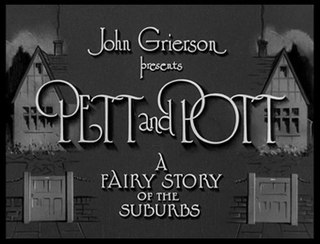
Pett and Pott is a 1934 short film produced by John Grierson under the auspices of the GPO Film Unit and directed by Alberto Cavalcanti.
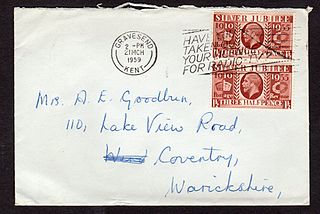
The King's Stamp is a 1935 short film produced by Alberto Cavalcanti under the auspices of the GPO Film Unit and directed by William Coldstream. It was commissioned as part of the celebrations of the Silver Jubilee of George V in 1935. The music was composed by Benjamin Britten.

